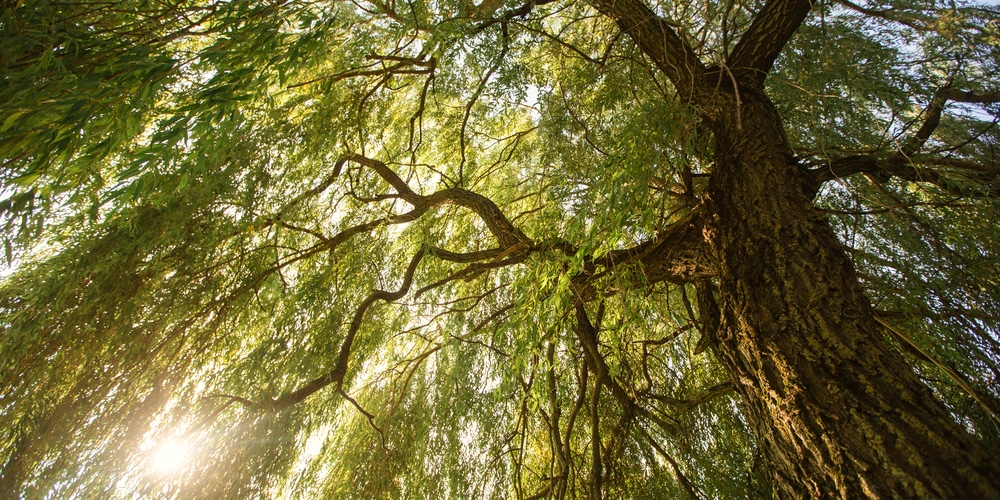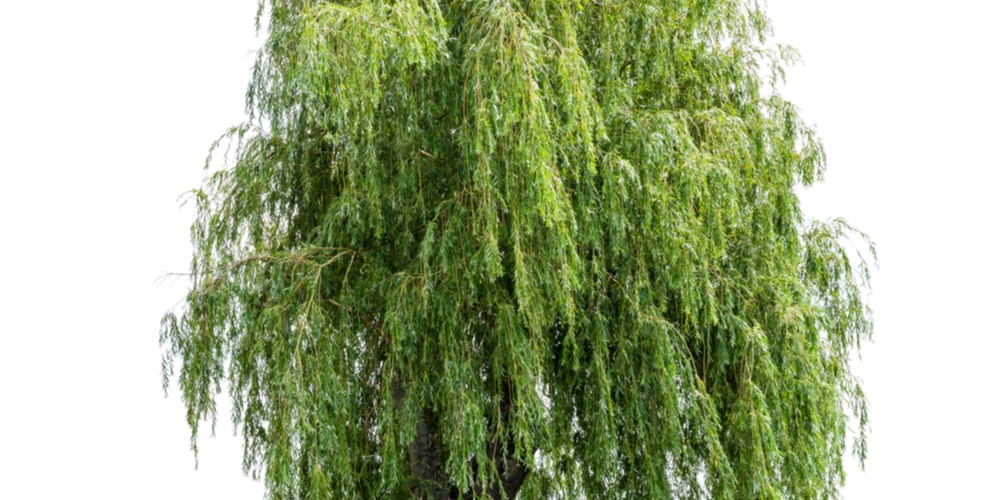Does your horse like to chew on weeping willow bark and leaves? You might be worried that your horse could get sick, so you want to know- ‘are weeping willow trees poisonous to horses?’
Is Willow Tree Bark Poisonous?
Horses love to explore their surroundings and do a bit of nibbling here and there. The reason why these animals do this is mostly that they’re curious, or that they’ve acquired a certain habit. Everything within their range is fair game, including your weeping willow tree.
Weeping willow trees are not poisonous to horses. The tree’s branches, bark, and leaves are all safe for horses to eat, although the same may not be said for cats. The willow’s bark, in particular, is somewhat a delicacy to horses, and these animals may persist in peeling it off the tree’s trunk and branches.
If your horse develops a taste or habit of nibbling weeping willow bark, then you might need to put a barrier or something that can put it out of your horse’s reach. This ensures that your willow lives on and continues to add an aesthetic appeal to your landscape.
It’s worth noting that willow bark contains a chemical compound named salicin. Salicin is an anti-inflammatory agent that works similarly to aspirin.
It can relieve headaches, back pain, muscle pain, and osteoarthritis, among others. One reason why your horse loves eating willow trees could be because of the healing effect it gives.
How Do You Stop Horses from Chewing on Willow?
Strictly speaking, willow trees are not considered a staple food for horses. These animals mainly munch on grass, hay, and fruits to live and stay healthy.
If your horse keeps eating the bark off your weeping willow, then it might be experiencing physical discomfort. Also, you’ll need to determine if you’re giving your horse the right amount of food. Sometimes it’s just a matter of curiosity or boredom.
Consider adding the amount of food your horse gets or putting in a slow feeder so the animal gets a consistent source throughout the day. In addition, you can put up a protective barrier for your young trees so they won’t get chewed to the ground.
What Trees are Toxic to Horses?
The following shrubs and trees are considered poisonous to horses:
- Horse chestnut
- Red maple
- Oaks
- Chokecherry
Horse Chestnut
The whole horse chestnut tree, including its seeds, leaves, and sprouts all contain a toxic substance that can harm a horse. Buckeye or Aesculus hippocastanum is a different species from other chestnut varieties, such as the American chestnut.
Red Maple
The withered leaves of red maple are highly dangerous to horses, and even a stray branch that falls on your pasture can pose a fatal risk. Keep an eye out for red maple leaves in fall and clean them up as necessary.
Oaks
Oak trees and their bark, leaves, and acorns contain tannins that are deadly to horses when a significant amount is consumed. Unripe acorns, young leaves, and flower buds in particular are the most dangerous as they have a higher concentration of the toxin.
Chokecherry
Chokecherry and wild black cherry have cyanide within their bark, leaves, shoots, and seeds and should be avoided at all costs. Even the branches and wilted leaves are not safe for horses to eat. In addition, you should not let your horse near peach and apricot trees as they have the same toxin.
Related Article: How Long Do Willow Trees Live?

